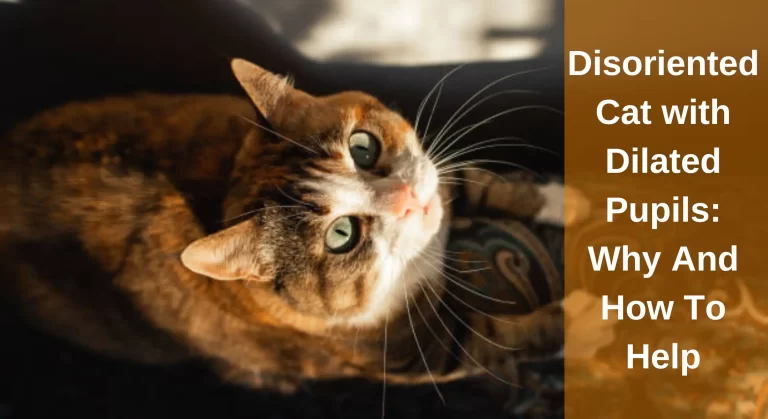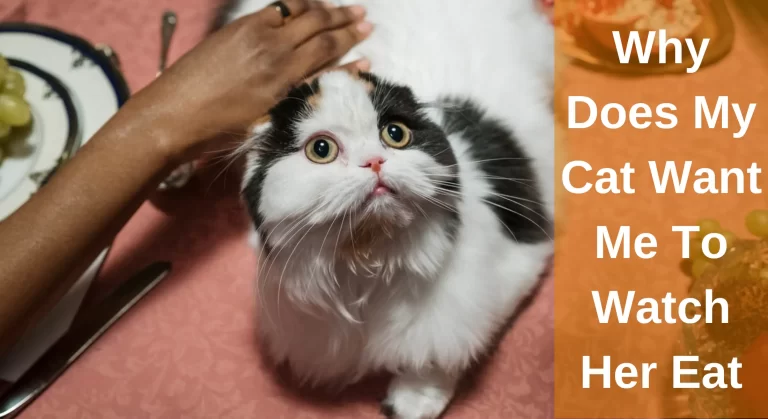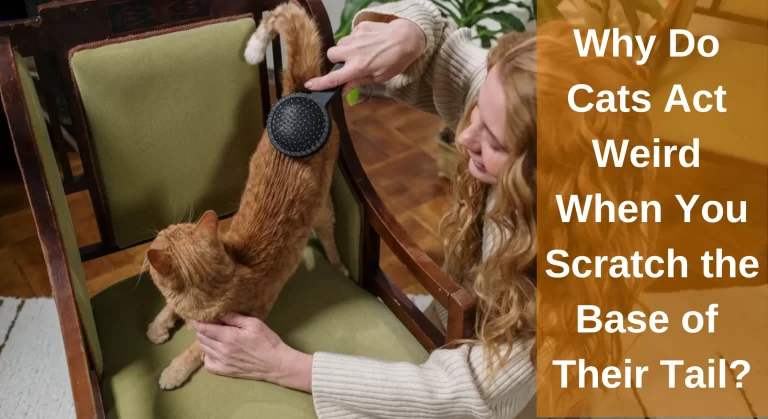Why Does My Cat Bunny Kick Me? [Answered]
Cats are masters of body bending and twisting, whether leaping from lofty platforms or tucking themselves into tight niches. If you are a cat owner, you might have experienced your furry friend bunny kicking you. It is a common behaviour among cats that can be cute but also confusing. Bunny kicking refers to when a cat uses their hind legs to kick while holding onto an object with their front paws.
There could be several reasons why a cat bunny kicks its owner. One reason could be that the cat is trying to play, hunting instincts or release excess energy. Another reason could be that the cat is feeling threatened or scared, and bunny kicking is a defensive behaviour.
In this article, we will delve deeper into this behaviour and explore the reasons behind it.
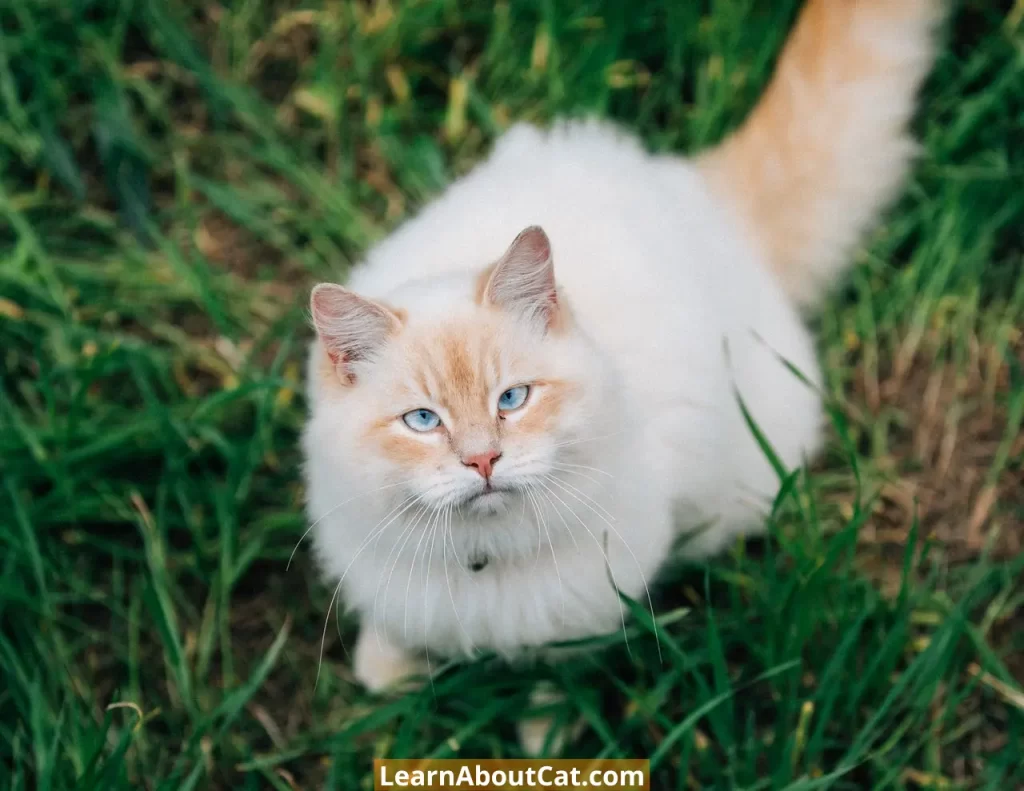
What is Bunny Kicking?
Bunny kicking is a natural behaviour among cats. It is when a cat uses its hind legs to kick an object or prey, usually while holding onto it with their front paws. This behaviour resembles a bunny’s kicking motion, hence the name. Bunny kicking is commonly seen in kittens, but it can also be exhibited by adult cats.
This behaviour is a survival mechanism that helps cats to defend themselves against predators and catch their prey.
When Do Cats Bunny Kick?
The cat bunny kick may be utilised as a hunting strategy as well as a strategic self-defence action. When a cat is on its back and showing all four paws and claws, its opponent has little chance against them in play or in true battle.
They have a peculiar habit of kicking their back legs towards you, a toy, or another cat. Your pet friend will choose a target e.g, your arm and wrap its front two legs around it before kicking it with its rear legs, resembling a miniature thumper. Cats typically do this bunny-kick manoeuvre while playing aggressively or attacking their prey.
Why Does My Cat Bunny Kick Me?
Self-defence and wilderness hunting both require the cat bunny kick. These two directly affect the chance of survival. So why does my cat keep kicking me in the thighs? This might also mean one of two things. Depending on the scenario, your cat is either playful or hostile. Here are the reasons:

1. Playful Behaviour
Cats are playful animals, and bunny kicking can be a sign that your cat wants to play with you. When your cat is in a playful mood, they might bunny kick you as a way to initiate playtime. It is a sign that your cat trusts and feels comfortable around you.
If your cat kicks you with his back legs, he could be attempting to play with you. He would surround your arm with his front legs and “play” by hammering his back legs. Your cat is not trying to purposefully hurt you, even if it could hurt.
Cats play with their prey by bunnying them, before attacking. This explains why cats regularly step on their toys with their hind legs. When cats play with toys and play with prey, their actions are extremely similar.
2. Aggressive Behaviour
Although bunny kicking is usually a harmless behaviour, it can be a sign of aggression in some cats. If your cat bunny kicks you aggressively, it might be a sign that they are feeling threatened or stressed.
Something might happen if you try to touch them in a place they don’t like. Aggression in cats can be caused by a variety of factors, including fear, anxiety, territorial behaviour, and past experiences of trauma or mistreatment.
When a cat is feeling aggressive, it may lash out with its back legs in a bunny-kicking motion. They kick their legs back, trying to throw you off of them and away from them. To determine whether your cat is scared or anxious, you need to observe its body language and behaviour.
3. Overstimulation
Another reason why your cat may bunny kick you is due to overstimulation. Cats have a natural threshold for how much interaction and handling they can tolerate before becoming overwhelmed or overstimulated. Overstimulation can occur when petting your cat for too long or in a way that they find uncomfortable or overbearing.
When cats become overstimulated, they may respond with bunny kicking. This behaviour is a way for the cat to communicate their discomfort and need for space.
4. Bunny kicking is in self-defence
Bunny kicking can also be a sign of defensive behaviour. If your cat feels threatened or cornered, it may use their back legs to defend itself. This is especially true if they are feeling scared or uncomfortable in their environment.
The only primary defence that cats have against predators is their claws. This explains why most cats, when scared, opt to hide rather than become aggressive immediately away. Evolution has taught cats that avoiding conflict boosts their chances of survival.
It is important to understand your cat’s body language and behaviour to recognize when they may be feeling threatened. If your cat is showing signs of fear or aggression, such as flattened ears, dilated pupils, or hissing, it is important to give them space and not approach them
5. Grabbing Prey
Cats are capable of jumping nine times their height and landing upright. They can also squeeze themselves into small spaces to look for suitable prey.
Cats are natural hunters, and bunny kicking mimics the behaviour of a cat catching and killing prey. When your cat bunny kicks, they may be satisfying their hunting instincts.
Cats always start their hunt by stalking their prey and then they will leap forward and charge at their prey while maintaining their focus on the kill. They will hit their prey with one or both of their paws to harm it. Normally, cats will keep their prey alive at this point.
This behaviour is more common in cats who spend time outdoors and have the opportunity to hunt live prey. Indoor cats may also exhibit this behaviour during playtime with toys or other objects. They may use their back legs to grab and hold onto a toy as if it were prey.
Also Read: Why is My Cat Attacking Me All of a Sudden?
How Can I Predict the Bunny Kick of a Cat?
Pet owners may tell whether their cats are being calm or hostile by understanding how cats act. If your cat’s eyes are open wide and their pupils are dilated, they are ready to battle.
The more time you spend with your cat, the more preferences you’ll discover about them. Some cats “don’t tolerate having their abdomens stroked at all, and they will quickly feel upset if you try to rub them there. Your cat will let you know if they are displeased without holding back.

Why Does My Cat Bunny Kick Me While I’m Petting them?
A cat may bunny kick while being petted as a form of overstimulation. Some cats may become overly excited or agitated when being petted, leading them to engage in bunny-kicking behaviour. Try redirecting their behaviour towards toys or other objects to discourage the behaviour.
Is it Okay to Let My Cat Bunny Kick Me?
It is generally okay to let your cat bunny kick you as long as they are not being aggressive or causing harm. Bunny kicking is a natural behaviour in cats, and it can be a fun way to play and bond with your cat.
However, if your cat is kicking you too hard or with their claws out, it is important to gently redirect its behaviour to avoid injury.
It’s always best to prioritize your safety and comfort, while still providing opportunities for your cat to engage in their natural behaviours.
Check Out: Do Cats Get Mad At You?
How Does Bunny Kicking Benefit Cats?
Bunny kicking provides several benefits to cats. It helps them release pent-up energy and frustration, which can reduce the likelihood of destructive behaviour.
Furthermore, it keeps their muscles and joints healthy, helps them maintain their weight, and enhances their agility.
Bunny kicking can also provide mental stimulation and reduce stress and anxiety in cats. It gives them an outlet to express their natural instincts and relieves boredom, which can lead to destructive behaviour.
Why is it Not a Good Idea to Bunny kick?
If your cat isn’t hissing or snarling, and her ears aren’t pointed to her head, she’s probably just being playful. However, behaviourists strongly suggest stopping the impulse to kick the bunny as soon as it appears.
When a predator attacks, it is used both offensively and defensively. It could cause others to act more violently against you or other family members at home.
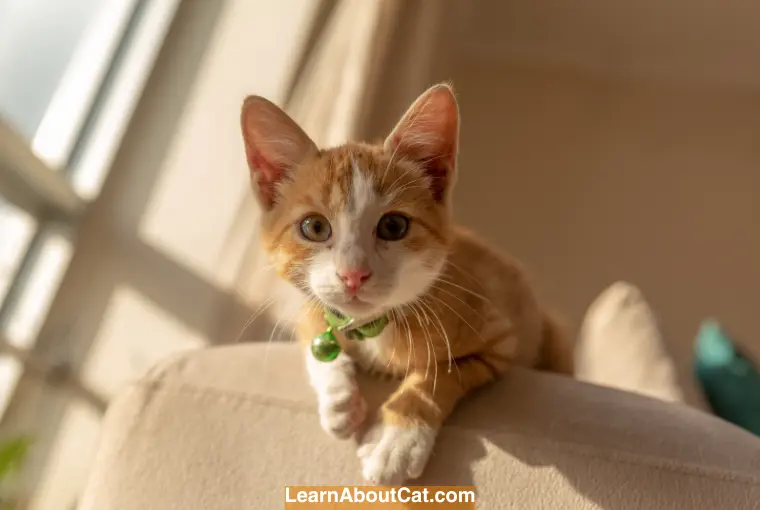
Here are some reasons why you may want to discourage this behaviour:
- Injury: If your cat bunny kicks you too hard or with its claws out, it can cause injury or pain. This can be especially concerning if you have young children or elderly family members who may be more vulnerable to injury.
- Destructive behaviour: Bunny kicking can become a habit, and if encouraged or not redirected to appropriate toys, it can lead to destructive behaviour or aggression towards people and sometimes lead to damage to household items or furniture, especially if your cat is using their claws to scratch or dig into surfaces.
- Aggression: In some cases, bunny kicking can signify aggression or stress in cats. If your cat is frequently bunny-kicking or becoming aggressive during playtime, it may be a sign that they need more exercise, mental stimulation, or a calmer environment.
Is It Possible to Reduce the Use of Bunny Kick?
If your cat’s bunny kicking is becoming excessive or aggressive, there are a few things you can do to reduce the behaviour:
- Avoid rough play: Since roughhousing encourages aggressive behaviour, such as using your hand or arm as a chew toy, it is not recommended.
- Provide appropriate toys: Another method to prevent cat aggression is to give your cat a plush toy that it may stalk and attack such as stuffed animals or small balls. This can redirect their playful energy and help them avoid bunny-kicking you.
- Set boundaries: Teach your cat that certain behaviours, such as bunny kicking, are unacceptable by gently pushing them away or saying “no” in a firm voice when they start to engage in this behaviour. Consistently enforcing these boundaries can help your cat learn appropriate behaviour and prevent bunny kicking.
Also keep in mind that even when your cat does the bunny kick during play, even if they don’t aim to injure you, you still run the danger of getting bit or scratched.
By following these tips and being mindful of your cat’s behaviour, you can help reduce the likelihood of getting bunny-kicked by your cat.
How Can You Tell When Bunny Kicking is Playful or Aggressive?
It can sometimes be difficult to tell when bunny kicking is playful or aggressive in cats, but there are a few signs to look out for:
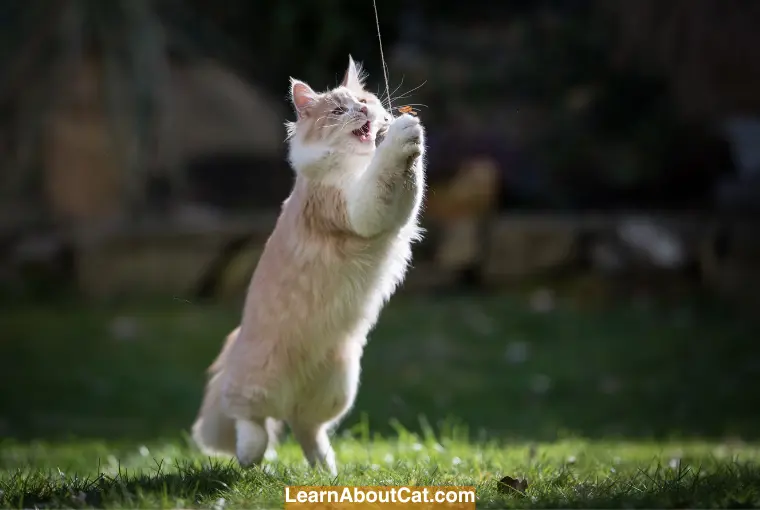
- Body language: Pay attention to your cat’s body language when they are bunny-kicking. If their ears are relaxed and their body is loose and playful, likely, they are simply engaging in playful behaviour. However, they may feel aggressive or threatened if their ears are flat against their heads or if their bodies are stiff and tense.
- Vocalization: Cats often use vocalization to communicate their mood and intentions. If your cat is purring or chirping while the bunny kicking, they are likely feeling playful. However, if they are hissing or growling, it may be a sign of aggression.
- The presence of claws: If your cat is bunny kicking with their claws out, it may be a sign that they are feeling aggressive or defensive. However, if they are bunny kicking without using their claws or using soft paws, it is more likely that they are simply playing.
- The intensity of the behaviour: If your cat is bunny kicking too hard or for an extended period of time, it may be a sign of aggression or overstimulation. However, if they are bunny-kicking gently and taking breaks in between, likely, they are simply enjoying playtime.
If you are still unsure whether your cat’s bunny kicking is playful or aggressive, it is best to err on the side of caution and redirect their behaviour to a toy or give them some space until they calm down.
How Do I Respond If a Cat Bunny kicks Me?
It’s crucial to determine the cause of cats’ hind leg pounding and find a solution. If stroking their stomach is causing them to do a bunny kick, stop it. Even if you’re being kind and only rubbing your cat’s stomach, they won’t see it that way.
You must respect the boundaries set by your cat. If they don’t like belly massages, show them affection and attention in other ways.
Here are some ways to show your cat how much you care:
- Stroking and petting your cat in their preferred areas.
- Cats steadily blink in their loved ones’ direction to show their adoration.
- Fun times with your cat and its favourite toys.
- Showing your concern by stroking and grooming your cat.
What happens, though, if your cat kicks more out of play than out of aggression or self-defence? Since you can’t stop engaging with your cat, it is more difficult to quit bunny kicking when playing with your cat. However, it is possible to counteract this inclination!
The following guidance could be useful for avoiding and discouraging bunny kicking.
- Understand that bunny kicking can be a defensive behaviour: If a cat bunny kicks you, it may be a sign that it is feeling threatened or scared. The cat may be trying to protect itself from perceived danger.
- Give the cat some space: If a cat bunny kicks you, it’s best to give the cat some space and avoid making any sudden movements. This can help the cat feel less threatened and reduce the likelihood of further aggressive behaviour.
- Avoid touching or picking up the cat: It’s important not to touch or pick up the cat until it has calmed down. This can exacerbate the cat’s fear or aggression and make the situation worse.
- Observe the cat’s body language: Pay attention to the cat’s body language, such as flattened ears or a puffed-up tail. This can indicate that the cat is feeling scared or aggressive.
Please note that we do not want to remove bunny kicking entirely. This is an innate need that has been transmitted over years of growth. We want to make sure that our cats concentrate their activity on toys in a safe manner, rather than endangering people and other animals.
Frequently Asked Questions
Do all cats bunny kick?
Bunny kicking is a behaviour that comes naturally to most cats, but not every cat will do it. Some cats may prefer other forms of play such as chasing, pouncing, or batting at toys or may not engage in bunny kicking as frequently as others. It ultimately depends on the individual cat’s personality and preferences.
Additionally, certain breeds or individual cats may be more prone to bunny kicking than others.
why does my cat bite and bunny kick me?
If your cat is biting and bunny-kicking you, it could be a sign that they are overstimulated or feeling threatened. When cats are overstimulated or feel threatened, they may resort to using their teeth and claws to defend themselves.
why does my cat grab my hand and kick me?
When a cat grabs your hand and kicks you with their hind legs, it is usually a sign that they are playing. The cat is using their front paws to grab onto your hand while using their hind legs to kick.
Cats have a natural instinct to play, and this behaviour is often a way for them to engage in playful interaction with their human companions.
Can bunny kicking be a sign of anxiety?
Yes, bunny kicking can be a sign of anxiety in cats. If your cat is exhibiting other anxious behaviours, such as excessive grooming or hiding, it may be a sign of anxiety.
Why do cats expose their bellies?
Cats expose their bellies as a sign of trust and relaxation. When a cat is lying on its back with its belly exposed, it is indicating that it feels safe and comfortable in its environment.
However, it’s important to note that not all cats enjoy having their bellies touched, even when they’re exposing them. It’s best to approach a cat with caution and respect their personal boundaries.
What is the difference between bunny kicking and scratching?
Bunny kicking involves a cat using its hind legs to kick and scratch while holding onto an object or prey with its front paws. Scratching involves a cat using its front paws to scratch and claw at surfaces, such as furniture or scratching posts.
Can older cats bunny kick?
Yes, older cats can bunny kick. While bunny kicking is more commonly seen in kittens, adult cats can also exhibit this behaviour.
Wrap up!
The only attractive aspect of a cat bunny kick is its name. Cats use this style of stomping action for both hunting and self-defence. Another way to say it is that it is a severe and strong move.
As a result, you shouldn’t let your cat pound its hind legs against you, your family, or other pet. Instead, direct this innate propensity toward toys. Keeping in mind that cats are animals, we must allow them to continue with their typical behaviours in a safe and non-aggressive manner.
By understanding the reasons behind bunny kicking and providing your cat with proper outlets for their energy, you can strengthen your bond with your cat and keep them happy and healthy.
Who is Isabella?
My name is Isabella, and I am a dedicated and knowledgeable cat enthusiast. With years of experience caring for cats and a deep love for felines, I made a mission to help other cat lovers navigate the challenges of cat ownership.

